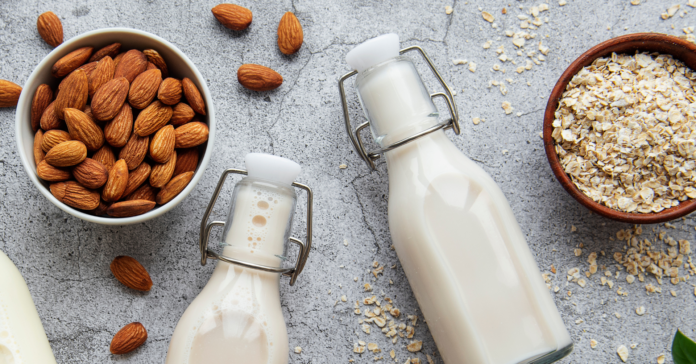The popularity of non-dairy milk like oat and almond milk is rising. How wholesome are they, though? A dietitian from the KK Women’s and Children’s Hospital (KKH) Nutrition and Dietetics Department, Joey Ho, explores the truth about which is healthier.
Many people are switching from cow milk (dairy) to plant-based milk because they think it is more environmentally friendly, healthier, and more sustainable than cow’s milk.
Due to dietary restrictions (such as a vegetarian diet) and individual preferences, others may also consume them. People who are allergic to cow’s milk proteins or intolerant to dairy milk seem to prefer non-dairy milk as a substitute.
How is oat milk made?
Oat milk is made by blending oats and water, and then straining the mixture to get the milk. Because oat milk is naturally sweet and has more carbohydrates than cow’s milk, persons with diabetes may find it unsuitable.
However, oat milk is a strong source of soluble fiber, including beta-glucans, and recent research suggests that consuming these foods may lower total and LDL (low-density lipoprotein) cholesterol levels. Blood cholesterol levels are decreased as a result of beta-glucans’ interaction with cholesterol-rich bile acids in the colon, which transports them through the digestive system and out of the body.
Since less cow’s milk is drank, less saturated fat is consumed overall, which may also contribute to these benefits.
How is almond milk made?
Almonds are soaked in water to make almond milk, which is then strained to remove the solids. Others who are intolerant to soy and dairy milk may be able to drink almond milk, while people with nut allergies may not.
Almonds are a good plant-based protein source, however, they provide less protein and calcium than cow’s milk. Additionally, almond milk frequently has a high unsaturated fat content and few calories. Additionally, some products could use extra sugar to enhance flavour and texture while extending shelf life.
Almond milk is a naturally good source of antioxidant vitamin E compared to other plant-based milk and dairy. It is a type of fat-soluble vitamin that contributes to the immune system of the human body and shields cells from the harmful effects of free radicals that could potentially cause the onset of cancer and cardiovascular disease, though there is not enough evidence at this time to confirm such effects.
Are alternatives to cow’s milk like oat and almond milk always preferable?
Due to their low protein and calcium contents, which are crucial for growth and development in young children, oat milk and almond milk might not be acceptable nutritional replacements for them.
Because there is no clear winner when it comes to plant-based milk, you should ultimately consider your entire diet when making your decision. Never forget to look at the nutrition panel for components like extra sugar and undesirable additives (e.g. flavoring and colouring). Choose calcium-fortified and unsweetened versions of these plant-based milk if you want to make healthy decisions.


